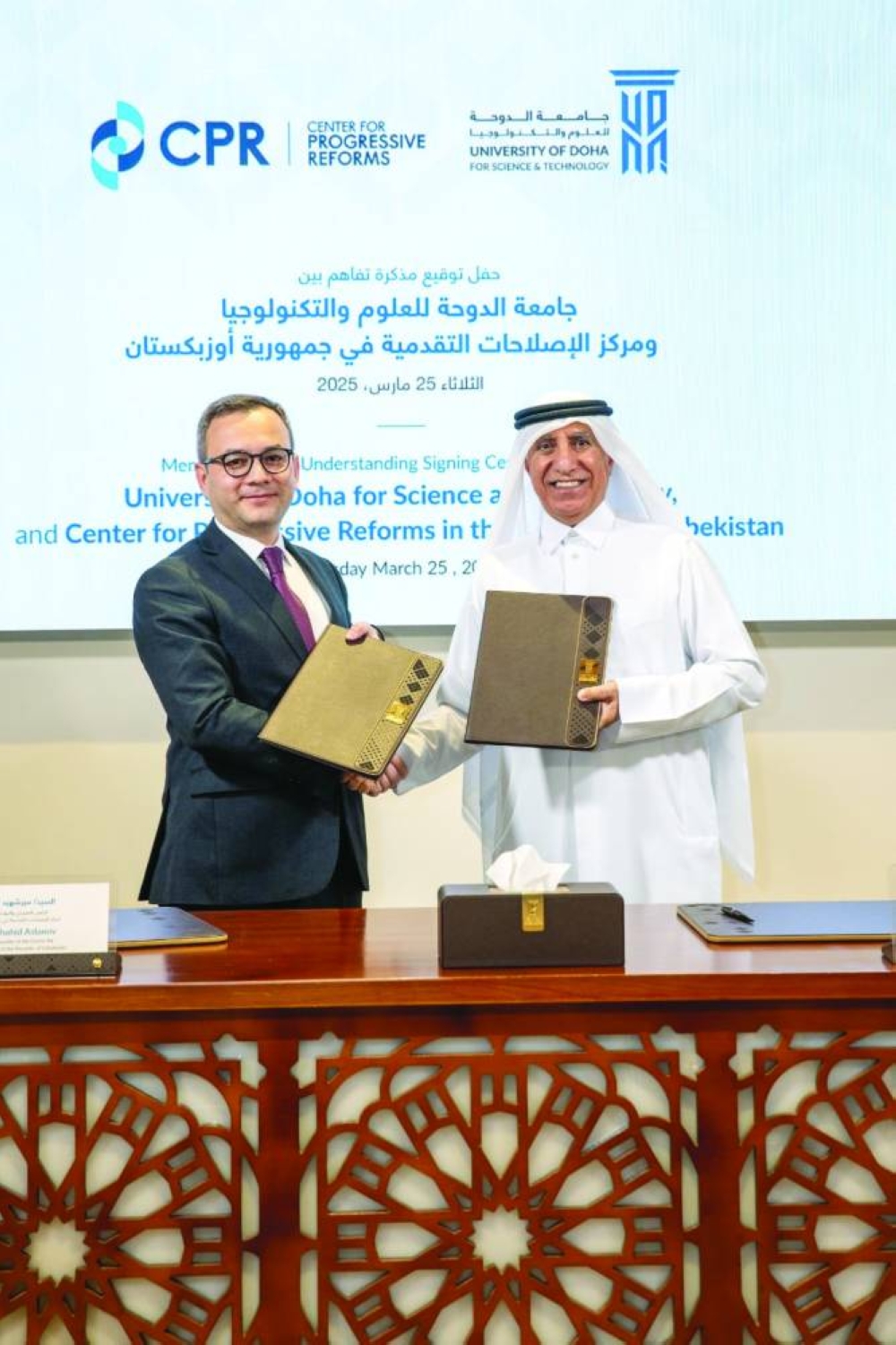In a landmark step towards strengthening bilateral co-operation, the University of Doha for Science and Technology (UDST) and Uzbekistan’s Center for Progressive Reforms signed a memorandum of understanding (MoU) Wednesday, marking a major step in academic co-operation and professional development.
The agreement, facilitated by the Embassy of Uzbekistan in Doha, reflects the shared commitment of both nations to advancing education, skills development, and economic empowerment, a statement said.
The Uzbek-Qatar Vocational Skills Center that will be established in Namangan, Uzbekistan, will train engineers, industrial workers and nurses using UDST’s world-class vocational programmes, ensuring graduates receive certifications that open doors to employment in Qatar, the Middle East, and beyond.
Qatar has emerged as a regional leader in education, with institutions like UDST setting benchmarks in technical and vocational training. Recognised for its cutting-edge curricula, state-of-the-art facilities, and industry-aligned programmes, UDST has become a model for applied learning, equipping students with skills that meet the demands of a rapidly evolving global economy.
Beyond its domestic achievements, Qatar has been a key supporter of educational and humanitarian initiatives worldwide, providing development assistance to partner nations. Projects like the Uzbek-Qatar Vocational Skills Center align perfectly with Qatar’s vision of fostering sustainable development through education and capacity-building. Such support would further solidify Qatar’s role as a global advocate for education-driven growth while deepening ties with Uzbekistan.
UDST president, Dr Salem Al-Naemi, praised the initiative, stating: “This partnership underscores our university’s commitment to sharing Qatar’s expertise in vocational training with friendly nations. This collaboration will enhance academic exchanges, research initiatives, and professional training, ultimately benefiting students, faculty, and the workforce in both Qatar and Uzbekistan.”
Mirshohid Aslanov, co-founder of the Center for Progressive Reforms, highlighted the project’s potential to reduce unemployment in Uzbekistan’s Fergana Valley, a region with a high working-age population. “By equipping young people with internationally competitive qualifications, we are creating pathways to prosperity for thousands,” he said.
The Uzbek-Qatar Vocational Skills Center marks a new chapter in bilateral relations, demonstrating how shared expertise can drive meaningful change. As both nations continue to explore joint ventures in trade, investment, and education, this initiative stands as a testament to the power of international co-operation in building a more skilled and prosperous future, the statement added.

